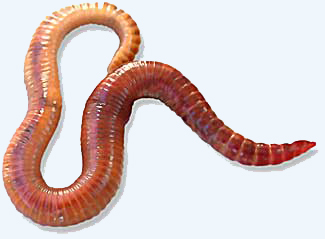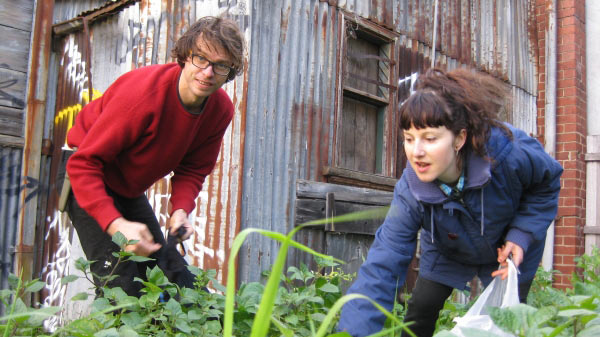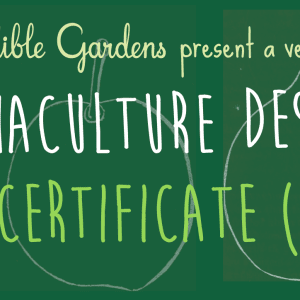Living with Worms
 They’re wild and wiggly. They make kids giggly. And they turn your kitchen waste into the richest most fertile compost imaginable. Worm castings are a special treat for your plants, like feeding them chocolate (and look a bit like it too) only minus the tooth decay and regret. So put on your rubber suit and let’s dive deep into the world of worms…
They’re wild and wiggly. They make kids giggly. And they turn your kitchen waste into the richest most fertile compost imaginable. Worm castings are a special treat for your plants, like feeding them chocolate (and look a bit like it too) only minus the tooth decay and regret. So put on your rubber suit and let’s dive deep into the world of worms…
Why keep worms?
- Instead of your kitchen waste going to landfill where it stinks up your rubbish bin and produces methane gas, hire some worms
- Worms can help you compost kitchen scraps in a small space, including on a balcony or even in a garage!
- Their castings are a particularly rich compost, and like all compost it’s a general soil improver for water holding capacity, pH, nutrient holding capacity, for healthier happier plants
- Many people swear by the liquid that comes off the worm farm as a great fertiliser
- Worms are easy to look after – they’re quiet and well behaved
Why not?
Ok, let’s not get carried away too quickly here! The lure of the worm is great. But it’s worth considering if another form of composting is appropriate. Although they are usually easy to look after, they can die in hot conditions or if left unattended for too long. They’re also a bit fussier in their food choices than a regular compost bin is, and certainly won’t eat your woodier garden scraps.
A little about compost worms
Compost worms are not the same as all garden earthworms. If you have them in your garden already, you’ll find them close to the surface, in moist, rich conditions where there’s fresh organic material like manures and mulch. Regular earthworms dig deeper and are less fussy in their diet.
Getting started
How many worms should I start with? We recommend that you start with 1,000 multiplied by the number of people in your house. They double in number roughly every three months (faster in ideal circumstances). A well maintained worm farm will increase its population to a comfortable amount for the space and food provided.
Housing
There are some tray-based plastic worm farms on the market, designed to keep flies out, and separation of compost from worms easy. Two great things, although with these models in summer you must keep them either in a cool garage, or with something like a well-watered piece of hessian on top to keep them cool, as worms in black plastic do not survive direct sunlight! Many worm owners have seen worm-apocalypses after 35°C and above temperatures. And it is not pretty.
Polystyrene box: If you’re budget conscious, you can make your own worm farm with three stackable polystyrene boxes that have holes in the bottom. This will need to be standing on a large tray to catch the worm castings, and should be covered with a wet hessian bag or a waterproof cover if your farm is exposed to rain.
To start your worm farm, add for instance the following layers (from bottom to top):-
1. Thick layer of chopped up and wet cardboard
2. Thin layer of dry grass clippings or straw
3. Thick layer of partly broken down compost
4. Your worms
5. Worm food (see below)
6. Cover with a thick layer of damp newspaper
Where should I put my worm farm?
A well maintained worm farm will not smell or attract pests, and worms need a sheltered, shady spot that isn’t too light or hot. It’s best to place it near your kitchen for easy access. Eg. in the laundry, the shed, on a balcony, under a tree).
Food for Worms
Feed them chopped up kitchen scraps, chopped soft weeds, coffee grounds, tea leaves, animal manure (horse and cow poo is favoured). Add wet shredded newspaper, cardboard or wet straw each time that you feed the worms to keep the worm farm smelling sweet. To increase the fertility of your worm castings, it is important to give your worms a varied diet.
Gradually increase the amount of food given to encourage poplation growth, but don’t overfeed. Worms eat approximately the same weight of food as themselves eg. 1kg of worms (4,000 worms) eats 1 kg of food per week. A smelly worm farm or the presence of vinegar flies can also indicate over-feeding.
Don’t feed your worms citrus (lemon, orange etc), onions, meat, cheese, fatty foods (although a healthy teeming worm-farm can handle small amounts of all of these).
Water: Keep your worm farm moist (not dripping wet). Often the moisture from vegie scraps is enough.
Pay-off!
After about 2 months rich, dark worm castings will be building up and worm juice will start to accumulate at the bottom of the worm farm.
Worm castings and compost are the best soil conditioners. Castings should be dug into recently watered soil, or watered in when added. If added in spring or summer, the area should be mulched straight after adding the castings. They can be added to any area of your garden – including vegie beds. The worm castings fertilise the soil to encourage strong plant growth and healthier soil. A generous handful of worm castings added to a watering can, stirred, and used straight away makes a great compost ‘tea’ to be applied to your vegies and favourite plants.
Worm juice (the liquid that drains out of the worm farm) is also worth collecting and spreading around the garden, although it’s not as rich as the castings themselves. When using worm juice, it’s best to dilute it at least ten parts water to one part worm juice so that it spreads further and has greater effect.
Problem Solving
- Sour smell and lots of tiny vinegar flies. Add wet shredded newspaper or straw.
- Ants – probably because something sweet is in the compost, or the compost is too dry. Remove sweet stuff or add water.
- It’s normal to have slaters, springtales, mites and other organisms in the worm farm. If it is not bugging you (ha ha), more life is a good thing!
Worm farm for your dog’s unmentionables!
Have a separate worm farm for your dog poo and don’t handle the castings directly or put on your vegetable area — but use them in your ornamental garden or around trees. Get the full low down on our ‘what to do with doggy doo‘ page.
Recipes
Cream of Worm Soup.
(No just kidding).
So that’s the low down on worms. See also our page on compost.



